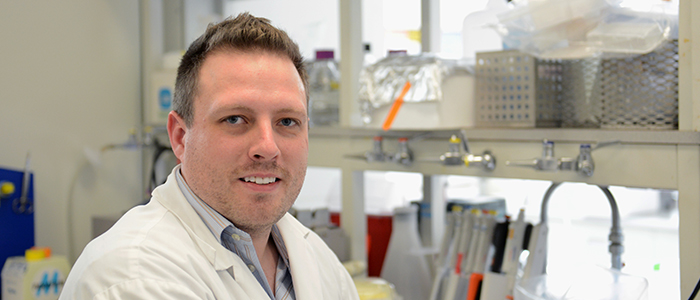Exposing the system that protects us

When Ryan Shaler, PhD, was completing the first half of his undergraduate degree at McMaster University, he had absolutely no idea what his future education or career trajectory would look like.
It wasn’t until third year, when he took an introduction to immunology course, that he became fascinated by the idea of the immune system.
A postdoctoral fellow in the Department of Microbiology and Immunology, Shaler is currently working on research in the Haeryfar lab that involves looking at some of the immunological components associated with cancer. He is specifically looking at why the immune system fails to target and eliminate cancer cells.
“The eventual goal is to try and understand why, in certain individuals, there is this defect in the ability of the immune system to locate and eliminate cancerous cells,” Shaler explained. “By understanding what is actually going on in the tumour, we may be able to develop more targeted approaches to restoring this normal surveillance mechanism that keeps people healthy.”
The young scholar explained that a recent addition to cancer therapy, which has been supported by successful clinical trials, is cancer immunotherapy and using what are called checkpoint inhibitors. The immune system has a number of built-in checkpoints that limit undo inflammation and autoimmunity.
In cancer, the tumour environment utilizes these checkpoints to suppress the immune response to allow for its own persistence. In new therapeutics, drugs that are targeted at blocking the engagement of these checkpoint markers are used, so the immune system can continue on unsuppressed.
“I have always been interested in what regulated the immune system once it had been turned on,” Shaler said. “This is a good niche area to be working in, so I think I will continue with this research in the foreseeable future.”
When Shaler has free time outside of the lab, he spends it with his family — in particular his two young sons. He also recently gave a talk to the entire Department of Microbiology and Immunology, which he explained was a nice way to share his research and engage with people in the Department he doesn’t routinely come across.








